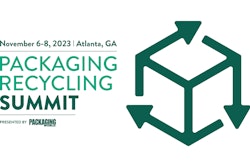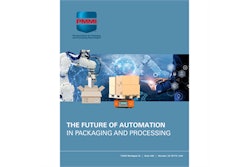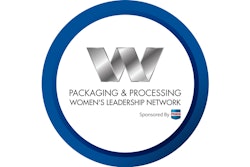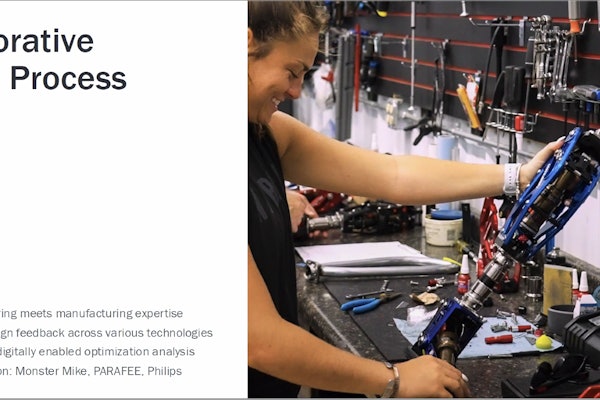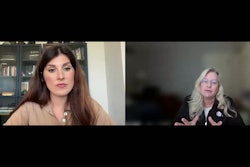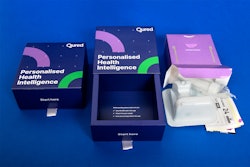Fresh off his best selling book “Zconomy: How Gen Z Will Change the Future of Business―and What to Do About It,” Jason Dorsey bring his years of experience studying generation kinetics to filter out the noise of generations and how they work and lays out plainly how everyone from Baby boomers to millennials needs to adapt to work with each other for the common goal that is good business practices. Let’s have a listen.
To subscribe, rate, review, and find more unPACKED podcast episodes, visit pmmi.org/podcast or find us on Apple Podcasts, Spotify, iHeart Radio, or wherever you listen to your podcasts.
Sean Riley:
So with all the fancy introductions out of the way, we'd like to welcome back to the podcast, Jason Dorsey. Welcome Jason.
Jason Dorsey:
Thanks. Thrilled to be back and back at you all's amazing event and a part of your great organization. So thank you as always for having me and all the great conversations that you advanced through the podcast. So glad to be here. Go team.
Sean Riley:
We appreciate it and we appreciate the enthusiasm. I saw your presentation and it's got to be a jolt for some of our people to be that enthusiastic that early in the morning. But again, we all appreciate it.
Jason Dorsey:
It was a lot of fun.
Sean Riley:
Yeah.
Jason Dorsey:
Everybody's excited to be here and I think there's a real desire to learn new insights and strategies and practical actions that people can take back to their businesses and it's fun to be able to deliver that and with a lot of laughs. Of course.
Sean Riley:
Absolutely. It's anything but dry, let's put it that way.
Jason Dorsey:
Thank you.
Sean Riley:
So I guess sort of jump in with something that you spoke about. There was three things that you mentioned that are really important to talk about upfront. I don't know if you're saying this from the hiring process, talk about it that soon, but could you just touch on those and kind of go through those again, those three, I know the first one was salary range, those three things that are real important to get to upfront.
Jason Dorsey:
Yeah, absolutely. We've done a variety of research studies and also looked at lots and lots of data from companies, including many manufacturing companies trying to figure out and solve the challenge of how do you get people's attention when they're looking for a job so that they actually apply. And this is something that's incredibly important to me because as you heard in my speech, and as I say, every time I speak to companies, manufacturing, leadership, you name it, we can't hire people who don't apply. So,
Sean Riley:
Yeah, exactly.
Jason Dorsey:
We got to solve that riddle. And what we found is that in the first paragraph, you need to have three elements to really drive people to read the rest of the job application. And that's interesting because most people are looking for job postings on a mobile device. So remember they're scrolling, so we want to really grab their attention. And the three things that we discovered you have to include in that first paragraph. First one is salary range. And a lot of people immediately go, I don't want to do that. I don't want them to know. But the reality is you don't have to show it. You just won't get applicants.
Sean Riley:
Yeah.
Jason Dorsey:
Because they want to know it's worth their time to consider working for you. And most people think about that through the lens of, well, they care deeply about the higher end of the spectrum. And the reality is it's actually the lower end of the spectrum that matters the most because people want to know the minimum they could earn. And then when it comes to the higher end of the spectrum, what we've found is a great way to have that conversation is of course they go, oh, well I want the higher end of the spectrum.
And then you say, well, great. These are the three things that the people at the high end of the spectrum have done. Could be work experience, responsibilities, outcomes, et cetera. Do you meet those three things? Most people will say no. And that then creates a constructive conversation that also removes the pressure to come in at the high part of that salary range. So first is we want to put the salary range in the first paragraph. Second part is you want to have scheduling flexibility or show what kind of scheduling flexibility you could offer. Many people again, misread this and they think, oh, well, scheduling flexibility means they don't want to work on Fridays or whatever. That usually they think, oh, it's a four-day week, that sort of thing. But that's not what our research has found. What our research has found is that most people just wanted some flexibility in the hours per day.
So maybe instead of working from eight to five, they want to do seven to four, so they can pick their child up from school or they want to do nine to six so that they can take their child to school. And what we found is if you can just offer a slight variation one, two hours of those work hours in terms of starting later, earlier, you'll get a lot more applicants. Now, in fact, I didn't share this when I was speaking today, but one of the executives came up to me afterwards in the hall and was like, Jason, we do exactly what you said and it works so well. He said, we let people pick, do they want to start at seven, eight or nine? And then we just adjust based on that and we get much higher show ups because we're doing that. So that's where the scheduling flexibility comes in.
And then the third one is benefits, but benefits come with a twist. Older generations, you know I'm a behavioral researcher and we study generations and we study all kinds of workforce trends and tech trends and marketing and all these things. Older generations typically say the word benefits and know what that means or attach a meaning to it. Why? Because they've worked for decades. Of course they know what it means. Younger generations know benefits are important, but they don't actually know what benefits mean or what benefits could be included. And what we find is a lot of times older leaders don't necessarily sort of talk about all the benefits because they assume that the younger generation may not want to know. But what our research has shown repeatedly, we've seen this in our Zconomy book that I know you mentioned in the intro. We see this in our state of Gen Z studies every year.
Gen Z, which is now up to age 27, cares deeply about benefits. In particular, what they want to know is about do you offer free mental health services because they just still are coming out of this horrendous pandemic and there's a lot of mental health challenges that we want to be able to be a resource for. And second, they care deeply about retirement because they know they won't have social security. So when you put all that together, if you're going to talk about benefits, you have to explain what those benefits are at the top of the job posting. That way you get people to ultimately start the application.
And then there's a bunch of other tricks we can do to get them to finish it, but fundamentally look at your job postings and then go, wow, am I talking about salary range, scheduling flexibility and then benefits. And if you're not and you're putting it all at the bottom, just know people aren't reading to the bottom. They're reading that first paragraph and that's where we want to attract their attention, get them excited about why you can be a great fit to hire them.
Sean Riley:
You saying it out loud, it just seems like such common sense. And I'm thinking of going back in the day through job postings and things like that, and I never understood, I still don't understand, and I guess it's an American thing, what the hangup is about salary. Do you with your research and say, like is it an American capitalist type thing where talking about salary is such a third rail?
Jason Dorsey:
Well, I think historically it's a few things. One is historically you didn't talk about money in public, so some people didn't want to put it out there.
Sean Riley:
Right.
Jason Dorsey:
The bigger really underlying behavioral driver is that people feel that if I don't, well there's two ways. One is they feel like if I don't post salary, maybe we'll get applicants because it could be anything. So maybe there's being more open-minded. We know that's not true through research. The other is they think, oh, well if I don't post a salary range, it gives me as an employer more leverage in negotiating and maybe I can get you for a lower rate.
Sean Riley:
Right.
Jason Dorsey:
The problem with that, which again, this happened just in the hallway right outside where we're doing this interview, a different employer came up and was saying, Jason, I need to know how to deal with this. He was based in Florida and he was sharing that his new employees, his new hires are getting paid as much as his real experience. And the real experienced ones are frankly in his eyes, better performance doing more work. He's like, how do I deal with that? And I'm like, well, what we're seeing is you have to give the more experienced ones a raise because they will talk. There's no way they're not going to, and then you'll get resentment.
So some of that was, well, people aren't going to talk about what they make. Well, the reality is they do now. And so yeah, it's creating a lot of wage pressure, but in my view, as an employer, I want to attract the best employees I can. I want to be very fair with all of my employees, which means consistency and also transparency. So that's what he was saying is he's going to have to create raises for his more experienced ones to then again, show a pathway for the new hires, but also really value more experience. So all of that sort of wrapped up in this wage conversation, particularly in such an inflationary time, but it's a real situation and challenge that has to be addressed. And I believe as you see more states push for salary transparency, at least salary ranges, it's going to become less and less taboo or less and less of a secret and more of just, that's just something you've got to put out there in order to be part of the employment conversation.
Sean Riley:
Yeah. And it's a conversation for another podcast. And it would be a longer conversation probably, but it does, it makes me, I don't know, chuckle I guess, and I don't run a company, so I guess it's easy for me to say, but when a person asks something like that, but then my people that have been here for a while want to be paid a fair amount as the people that were hired, you kind of think to yourself, well, yes, they both want to be paid fairly, so I guess you have to pay them fairly.
Jason Dorsey:
Yeah. And that's really,
Sean Riley:
Yeah.
Jason Dorsey:
One of the biggest risks in the workforce today. I did not talk about this today, but I do a lot for leaders that, and for companies that have a hybrid workforce, one of the biggest risks out there is defining the word fair and this concept of fairness in the workplace. And a lot of times people sort of had the assumption that, look, it's just not fair. But now what we're seeing is a real push for transparency and consistency and fairness and all these other elements, and that's not going away. It's not going to be a fad that in three or five years doesn't matter anymore. If anything, it's rising more to the top with transparency and all the other things that go with technology. So my belief is you want to get on board, and if you're not going to be a pioneer in the space, at least you can be a leader or part of that group and that will serve you better over a long period of time.
Sean Riley:
One of the things that you touched on with your three things that you kind of want to get up front was on mental health, which sort of ties into another thing you talked about, which was the kind of people bring their life to work with them as it is part of their life. How do you get, like what's the easiest advice or how do you get upper management who is typically one of the older generations or has come up a different way, how can companies learn to get their upper management to understand that this work-life balance is super important to their employees? And they're going to come in and they're going to talk about it. So what's the best way to sort of get that to the upper management to sort of understand that unfortunately, for them unfortunately, for the workers, it's great, that this is just the way it is now.
Jason Dorsey:
Yeah, people don't like to talk about mental health, but the reality is not just in the US, around the world, we have a mental health crisis. We've just gone through a horrendous pandemic. The youngest generation Gen Z crashed into it, was introduced to mortality at a much younger age and also in a much more significant emotionally driven way given sort of the scale of it. And that they were constantly bombarded with it, with social media. Add-on social distancing, which upended how people normally build relationships and sense of isolation. And we go through a whole long list. And essentially what you end up with is this mental health crisis, which we're seeing play out unfortunately all around the world. At the same time, you have a generation, and this started with millennials, but it's continued with Gen Z that thinks, you don't leave your personal life at the door when you walk into work, you bring your whole self to work and you bring your personal life to work.
And managers have really struggled with this, right? They're bringing whatever's going on at home or whatever's on their mind directly to work, and how do you deal with this? And what we've learned at our research center is the absolute best solution, and we believe that every company should offer it. We're a small business at our research center, Center for Generational Kinetics, and then there's other companies we work with that have hundreds of thousands of employees and they've reached the same conclusion. And that is you have to offer free mental health services to your employees and if possible, to your employees and a significant other. And the reason is one, most managers, leaders and execs are not mental health professionals. So even if an employee brings a problem to you, they're not really skilled in knowing how to deal with that. At the same time, there's a lot of liability trying to solve for that with them.
And mental health services, sometimes these are considered an employee assistance program. There's different ways, but basically it's really inexpensive for companies to offer, very, very inexpensive. And what's really cool is its anonymous. So usually you just find out somebody used the service, you don't know who, but somebody did it. And for me, I celebrate every time one of our employees does that, right? That means they reached out or their significant other.
Sean Riley:
Sure.
Jason Dorsey:
And part of it is that the reason you want to, if possible offered for their significant other, family is if they've got a problem with their family, something going on there, they're going to bring it right to work. And when you mentioned like work-life balance and these things, we see that the younger generation thinks they're going to have to work forever because they don't believe they're going to get social security. They don't believe there's going to be government safety nets or social support at that time. So the reality is they're going to be working forever, and as part of that, I'm going to work forever. If you say, okay, you're 22 and you're going to work for 50 or 60 years, that really changes how you think about work and how you think about working on weekends or coming in earlier, staying late. And it just gives you sort of a different frame of reference.
And we believe that employers can best address this again by offering these free mental health services as a benefit and other resources. And being mindful that sort of the employee contract these days is very different than maybe it was 20, 30, 40 years ago, dramatically different frankly. And the better they realize that, the better they're going to be able to attract and keep and also engage and really unlock the potential of their employees. We're big advocates for that. Thanks for asking about it, by the way. As you can tell, I'm very passionate about that.
Sean Riley:
No, and as you should be, and I am as well. And that's why when I heard it mentioned multiple times, I was very happy to hear that it is something that you're spreading the gospel of sort of to higher ups because it is something that is coming out of what we've come out of in the last three years is something, it's crucial. It's crucial to just humanity, I guess is kind of how I look at it.
Jason Dorsey:
And we see older generations using the same services. So even though Gen Z and millennials may be more vocal about it because it's much more acceptable among that generation to talk about it, since it's anonymous, we see every generation using it. And look, there's a lot of parents and grandparents out there that are struggling and people that are just not where they thought they would want to be, and they're doing the best they can with the tools that they have, but they would love to get some help. So I really think this is one of those solutions that should become just a table stakes kind of benefit at every company.
Sean Riley:
Awesome. So I guess this is something that sort of ties to that, and maybe it's just a flashpoint type thing or call it clickbait or it's an easy way to get people to watch your show on TV or your newscast, but what is the continued, I'm Gen X, we're the ones that don't get talked about, which is fine, but,
Jason Dorsey:
You also asked the first question, so right on brand.
Sean Riley:
Exactly, exactly. Right. I know how to play this. But what I'm wondering is how is this, it's still a thing where millennials and Gen Z are just these awful enemy, not the enemy, but are just perceived so wrongly by just mainstream media, let's say.
Jason Dorsey:
Well, when we think about sort of news at a higher level, there's a combination between entertainment, shock value and fact. And fact maybe a loose term depending on,
Sean Riley:
Yeah, right.
Jason Dorsey:
What we're looking at, but what ultimately media platforms are trying to do is pull people in, keep them engaged, and then present a point of view. And the generations, particularly the generational divide or gap or differences, is very emotionally charged. It's a really, really strong topic that everybody has an opinion on because frankly, we're all in a generation and we may not like the generation that people think about us in or other generations. So you're taking sort of the age-old, sort of age collision, if you will, that has been going on since the beginning, right, and now you're just giving it names and personas. The challenge is that fact no longer matches the storyline. And we founded our research center solely to separate myth from truth about generations.
That's how we founded it. And that was the start. It's now changed to focus on driving these measurable outcomes in recruiting, retention, and marketing and sales. But originally it was just to separate myth from truth because we suspected that so much of what was being said about generations wasn't true, but there wasn't any real statistically accurate data to just sort of see what was true. And there was some truth, there always is some, but it wasn't nearly what sort of the headline said. Unfortunately, those particularly with social media, that has continued. Now, there is some movement from millennials to Gen Z and that now we're focusing on the next generation, which we should by the way, because they're driving new trends. But a lot of the commentary is extremely negative, and that's what frustrates me. I believe every generation's important, every generation's equally valuable, every generation brings something important to the world, and we need them.
And as soon as we make it negative or divisive, which unfortunately plays better in terms of clickbait, then you pull people in which then becomes sort of this virtuous cycle where, oh, I saw it here, it's got to be true. And you see it enough and then you believe it. It's sort of like we work with executives. In fact, even how we started our research center. I was speaking to this board of directors and this big public company and the CEO was saying how terrible his millennial engineers were, and I didn't know any better. This was like, I guess about 15 years ago I think. And I asked, well, can I see your data? Maybe if I look at the data, I can come up with some ideas or answers. And they sent me their data a few weeks later and I was going through the data at home and my wife walks in, my wife has a PhD.
And so she came in and she's like, what's going on? I said, well, I'm confused. I don't know what to do. I'm looking at the data this company provided. The CEO said his millennial engineers were terrible. And when I look at their data, that's just not true. In fact, they're doing great. They're moving into management roles, they're doing all these wonderful things, like it's not what's true. And I said, what do you think we should do? And Denise, my wife, said, well, we should start a research firm because if the CEO of the big public company doesn't understand his own data, imagine if we gave him data he could actually use. That's the actual story of how we started the firm and what we later put a name to it, we call it generations by proxy, which is people have an experience with someone in a generation and then they assign that sort of whole generation to that one.
Or a limited window of experience, could be their kids, could be that one employee who wouldn't work on their birthday or the one who brought their mom to work, and then suddenly the whole generation looks like that. But when we do these generational snapshots, which I talked about today, where you take your workforce and you create sort of this generational pie chart, people are stunned to see how many managers they have who are great millennials and even executives, and they find out that Gen Z is staying longer and all these things. And so what we try to do is combat this fiction and some of the sensationalized headlines with fact and data so that we can have a more informed and constructive conversation.
Sean Riley:
Awesome. Now, personally, I could talk to you all day, but we have a limited amount of time as you have a company to run and a family to go home to. So I will not do that. But I do urge all of our listeners to check out some of Jason's, some of his research, and definitely get his book as I mentioned up in the intro. He's a great listen and he really speaks, he brings it down to simplified terms for the rest of us to understand.
Jason Dorsey:
I love this work.
Sean Riley:
On kind of how all these things work. So I just want to thank you again, Jason, for coming back on the podcast.
Jason Dorsey:
Yeah, thank you so much. I love this conversation. And for any of your amazing listeners, we give away a lot of our research for free so they can download it right off our website, which is genhq, G-E-N-H-Q.com. And if you go to my website, which is just my name, jasondorsey.com, you can download free chapters of the Zconomy book. We'd love to just give that away so people have a good accurate foundation. And then if anyone wants to reach out to me besides the websites, you can just reach out to me on LinkedIn or follow me on LinkedIn. We release our research there frequently and new insights and strategies. And just for me, my mission is to carry on this conversation in a way that raises the conversation around the world. So be an honor to connect with any of your listeners. You know how much I care about this industry and the important work that you all do every day. So thanks again for having me on. Really been an honor.
Sean Riley:
Pleasure was all ours. Thanks, Jason.



